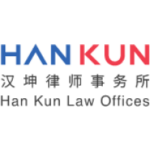-
In what industries or sectors are joint ventures most commonly used in your jurisdiction?
Joint ventures are commonly used in almost all industries and sectors of business in Indonesia.
Law No. 40 of 2007 dated August 16, 2007 regarding Limited Liability Company, as amended by Government Regulation in Lieu of Law No. 2 of 2022 regarding Job Creation (“Company Law”), requires any limited liability company, including a foreign investment company or perusahaan modal asing (“PMA”), to have at least two shareholders, except for companies that are wholly owned by the government and companies that manage a stock exchange, clearing and guarantee institutions, depository and settlement institutions, and other institutions set forth under capital market laws and regulations.
Whether it is necessary or not to have a joint venture agreement between the shareholders depends on the relationship among them. If the shareholders have a close relationship (e.g., affiliated companies and/or family relationship), they normally do not enter into a joint venture agreement. If they do not have a close relationship, they will normally enter into a joint venture agreement.
-
What are the main types of joint venture in your jurisdiction?
In essence, there are two types of joint ventures: (1) corporate joint ventures and (2) contractual joint ventures.
Corporate joint ventures are further divided into (a) incorporated joint ventures and (b) partnerships.
An incorporated corporate joint venture is a form of legal entity that has limited liability status, commonly referred to as a limited liability company (perseroan terbatas or “PT”), organized pursuant to the Company Law.
A partnership is a business entity that does not have limited liability status. Common forms of partnership in Indonesia are: (i) firm (firma or venootschap onder firma) and (ii) komanditer partnership/association (“CV” or commanditaire vennotschap). Under the Indonesian Commercial Code, the primary distinction between a firm and a CV is the contributions of the partners. In a CV, there are two types of partners, namely active partners, who manage the business of the CV, and passive partners, who merely make capital contributions to the CV. The liability of a CV’s passive partners is limited to the extent of their capital contribution. In contrast, there is no such distinction in a firm in that there are not different categories of partners.
A contractual joint venture is formed by agreement between the joint venture partners and does not require the establishment of a legal or business entity.
One example of a contractual joint venture is regulated under Law No. 2 of 2017 regarding Construction Service, as amended by Government Regulation in Lieu of Law No. 2 of 2022 regarding Job Creation (“Construction Law”). The Construction Law permits the formation of a joint operation, which is a legal arrangement that resembles a joint venture and is formed for time-specific construction projects. As further regulated in Government Regulation No. 22 of 2020 regarding Implementing Regulation to the Construction Law, as amended by Government Regulation No. 14 of 2021, a joint operation can be formed by a foreign construction company representative office and a local construction company or a combination of local construction companies. However, Annex II to Government Regulation No. 5 of 2021 regarding the Implementation of Risk-Based Business Licensing stipulates that foreign construction company representative offices must form joint operations with local construction companies in the form of a limited liability company. Therefore, only joint operations between local companies are permitted to be in the form of a contractual arrangement rather than establishing a limited liability company.
-
What types of corporate vehicle are most frequently used for equity joint ventures?
The preferred structure for equity-based joint ventures in Indonesia is a limited liability company (perseroan terbatas or “PT”), governed by the Company Law. A PT structure provides limited liability for shareholders, restricted to the amount of capital each shareholder has injected into the PT. Within the PT structure, joint venture partners can easily set terms for equity distribution, control, and profit-sharing through customized articles of association, giving the partners flexibility in ownership and management rights.
-
What are the key factors which influence the structure of the joint venture and the choice of joint venture vehicle?
The choice of structure and vehicle for a joint venture in Indonesia depends on various factors.
First, the involvement of foreign investment requires that the joint venture be established in the form of a PT (limited liability company), as regulated by Article 5(2) of Law No. 25 of 2007 dated April 26, 2007, regarding Investment, as amended by Government Regulation in Lieu of Law No. 2 of 2022 regarding Job Creation (“Investment Law”).
Second, regarding the industry, business sectors are categorized as open, restricted, or closed for foreign investment, based on the Positive Investment List under Presidential Regulation No. 10 of 2021 dated February 2, 2021, regarding Investment Business Fields, as amended by Presidential Regulation No. 49 of 2021 (“PR 10/2021, as amended”). This regulation specifies the industries that are open to foreign investment and sets ownership limits for foreign stakeholders. Certain industries, such as the arms and ammunition industry, sea and air transportation, and shipping have strict foreign ownership limits capped at 49%.
Third, the intended period or duration of the joint venture’s operation may also influence its structure and vehicle choice. Joint ventures formed for short-term projects may avoid complex structures, opting instead for a contractual partnership. For longer-term projects, joint ventures involving foreign investors typically need the more formal structure of a PT.
-
What are the principal legal documents which set out the terms of a joint venture and how does the constitution of the joint venture vehicle interact with the joint venture agreement?
There are two principal legal documents needed.
First, the joint venture agreement entered into by the joint venture partners. The joint venture agreement is in essence a private agreement documenting the relationship between the joint venture partners, containing the rights and obligations of the shareholders of the company (the joint venture partners) and regulates the relationship between these shareholders from before the company was established.
Second, the Deed of Establishment contains the articles of association of the joint venture as well as a list of the members of the Board of Directors (“BOD”) and the Board of Commissioners (“BOC”) for a PT, or a list of the partners for a partnership. Pursuant to Article 7(1) of the Company Law, the Deed of Establishment of a PT must be executed in notarial deed form and in the Indonesian language. The constitution of the joint venture vehicle, embodied in its articles of association in the Deed of Establishment, interacts with the joint venture agreement by formalizing and setting a legal structure for the relationship established in the private joint venture agreement. Joint venture agreements also typically include a provision regarding which agreement prevails in the event of a conflict between the joint venture agreement and the articles of association. In most cases, if not all, the joint venture agreement prevails over the articles of association.
-
How long does it typically take to form a joint venture in your jurisdiction?
The formation of a joint venture in Indonesia can take from several weeks to a few months, depending on compliance with regulatory requirements, especially if licenses or approvals from the relevant ministries are needed.
-
Is using a corporate joint venture structure effective in shielding the joint venture parties from liabilities for the operations of the joint venture entity under local law?
Using a PT joint venture structure effectively shields joint venture partners from liabilities arising from the joint venture’s operations. Under Article 3(1) of the Company Law, a PT’s shareholders are not personally liable for obligations made on behalf of the PT. This would mean that creditors cannot pursue shareholders’ personal assets. Furthermore, liability is limited to each shareholder’s contribution in the capitalization of the PT.
However, there is a difference for corporate joint ventures in the form of partnership. In a CV, passive partners have limited liability restricted to their capital contribution, while in a firm, all partners share unlimited liability without any distinction in roles.
-
Are there any legal considerations which apply to the financing of the joint venture or the contribution of assets to it?
Several legal considerations apply to the financing of a joint venture and the contribution of assets to it under Indonesian law.
- Forms of financing and capital structure
Joint ventures may be financed through equity contributions (shares) or loans from shareholders or third-party lenders. Equity contributions must comply with the Company Law, while loans are subject to additional regulations.
If the loans are given by foreign entities, the provisions under Bank Indonesia Regulation No. 16/21/PBI/2014 dated December 29, 2014, regarding the Implementation of Prudential Principles in Managing Offshore Debt for Non-Bank Corporations, as amended by Bank Indonesia Regulation No. 18/4/PBI/2016 of 2016, applies, including a minimum hedging ratio, liquidity ratio, and credit rating.
- Capital contributions and minimum capital requirements
Article 32(2) of the Company Law allows the founders of a company to determine the amount of the authorized capital. However, foreign investment companies must meet a certain minimum capital requirement, pursuant to Article 12(2) of Investment Coordinating Board (Badan Koordinasi Penanaman Modal or “BKPM”) Regulation No. 4 of 2021 dated March 29, 2021, regarding Guidelines and Procedures for Risk-Based Business Licensing and Investment Facilities. The initial investment must be at least IDR 10 billion for every line of business and every project location (with some exceptions applicable), excluding land and buildings.
There are several sectoral regulations that require a higher minimum capital requirement. For example, Article 19(1)(b) of Minister of Finance (“MOF”) Regulation No. 18/PMK.010/2012 of 2012 dated February 1, 2012, regarding Venture Capital Companies requires joint venture capital companies in which a portion of the ownership has direct participation by foreign business entities and/or institutions to have a minimum capital of IDR 30 billion.
Article 33(1) of the Company Law also requires at least 25% of the authorized capital to be issued and fully paid up, and the elucidation of Article 33(3) of the Company Law affirms that it is not possible to deposit shares in instalments.
- Contribution of assets
Article 34(1) and (2) of the Company Law allows deposits of capital to be made in forms other than cash, including assets, and such valuation of share capital is determined based on the fair value of the assets in accordance with market prices or by experts who are not affiliated with the company. Under Article 34(3) of the Company Law, the deposit of shares in the form of non-movable objects must be announced in one or more newspapers, within a period of 14 days after the deed of establishment is signed or after the General Meeting of Shareholders (“GMS”) decides on the deposit of shares.
For certain assets, especially intellectual property, regulatory approvals or notifications may be required. Law No. 13 of 2016 dated August 26, 2016, regarding Patents (“Patents Law”), as lastly amended by Law No. 65 of 2024, and Law No. 20 of 2016 dated November 25, 2016, regarding Trademarks and Geographical Indications (“Trademark Law”), as lastly amended by Government Regulation in Lieu of Law No. 2 of 2022 regarding Job Creation, govern intellectual property transfers, requiring registration and approval with the Directorate General of Intellectual Property Rights.
- Foreign exchange and currency requirements
Article 21(1) of Law No. 7 of 2011 dated June 28, 2011, regarding Currency, as amended by Law No. 4 of 2023, requires that transactions within Indonesia be conducted in Indonesian Rupiah (IDR). However, Article 21(2) excludes the requirement for international financing transaction. As further regulated in Article 9(1) of Bank Indonesia Regulation No. 17/3/PBI/2015 dated March 31, 2015, regarding the Mandatory Use of Rupiah in Indonesia, an international financing transaction is conducted when either the giver or recipient of financing is domiciled abroad.
-
What protections under local law apply to minority shareholders and what additional or enhanced minority protection mechanisms are typically agreed between the joint venture parties?
The Company Law provides foundational protections for minority shareholders. There are a few key provisions.
First, under Article 62(1) of the Company Law, any shareholder, including minority shareholders, who does not approve of certain company actions, i.e., amendments to the articles of association, the transfer or guarantee of the company’s assets exceeding more than 50% of the company’s net worth, or mergers, acquisitions, or separations that harm the shareholder or the company, may request the company to buy back their shares. Second, under Article 43(1) of the Company Law, every shareholder has pre-emptive rights, as all shares issued for a capital increase must first be offered to each shareholder in proportion to their shareholding in the same classification of shares. Thus, minority shareholders have the right to maintain their ownership percentage by purchasing a proportionate amount of newly issued shares, unless waived by the GMS, protecting them from dilution.
Third, Article 79(2) of the Company Law stipulates that a GMS may be requested by one or more shareholders representing 10% or more of total shares in the company.
Fourth, under Articles 97(6) and 114(6) of the Company Law, minority shareholders representing at least 10% of the shares in the company can file derivative lawsuits on behalf of the company against directors and commissioners who cause losses to the company through their faulty actions or negligence. This helps protect the company’s interests and, indirectly, the interests of minority shareholders. Furthermore, under Article 138 of the Company Law, one or more shareholders holding at least 10% of the company’s shares may petition the district court with jurisdiction over the company’s domicile to conduct an investigation of the company if the board of directors or commissioners has engaged in unlawful actions that harm the company, shareholders, or third parties. Additional protections typically included in joint venture agreements may include:
- Reserved Matters and Supermajority Voting Requirements: in the joint venture agreement, certain critical business decisions (e.g., the issuance of shares, major asset sales, or changes to capital structure) may require approval by a supermajority or unanimous vote. This ensures minority shareholders’ involvement in significant decisions, protecting their investment and influence in the joint venture.
- Tag-along Rights: tag-along rights allow minority shareholders to participate in a sale if the majority shareholder decides to sell its shares. This right is crucial in protecting the exit opportunities for minority shareholders.
-
What are the duties of directors of an equity joint venture, including in relation to conflicts of interest?
For equity joint ventures, which are typically in the form of PT, the main duty of the Board of Directors (“BOD”) is basically to run the day-to-day operations of the company, including but not limited to executing and performing agreements entered into by the company and third parties.
Article 100 of the Company Law sets out the duties of the BOD, which are to make a register of shareholders, a special register, minutes of GMS, and minutes of BOD meetings, prepare the annual report and financial documents of the joint venture, and maintain all registers, minutes, and financial and other documents of the joint venture. In accordance with Article 97 of the Company Law, directors in a joint venture in the form of PT must conduct their management responsibilities in good faith and with full responsibility, and failure to do so will result in each member of the BOD being personally liable for the joint venture’s losses resulting from their fault or negligence.
In relation to conflicts of interest, Article 99(1) of the Company Law affirms that directors with a conflict of interest with the company are not authorized to represent the joint venture. Furthermore, Article 101(1) of the Company Law requires directors to report to the company regarding shares owned by them and/or their family members in the company and other companies, which are to be recorded in a special register. If a director fails to do so and it results in losses for the company, that director will be personally liable for the losses.
-
What is the typical structure of a joint venture's management body/board?
A typical joint venture management structure in Indonesia consists of a BOD and BOC. The board’s structure and composition are typically defined in the joint venture agreement and articles of association, often reflecting the shareholding proportions and management responsibilities of each party. The BOD basically runs the day-to-day operations of the company, while the BOC supervises the work of the BOD.
-
Does local law imply any fiduciary duties or duties of good faith between the parties to a joint venture?
While Indonesian law does not explicitly impose fiduciary duties between joint venture parties, good faith principles are required in contractual relationships. Article 1338(3) of the Indonesian Civil Code mandates that all contracts, including joint venture agreements, must be executed in good faith.
-
Do any restrictions, such as foreign direct investment rules, apply to foreign joint venture parties?
There are restrictions for foreign joint venture parties. As explained previously, Article 5(2) of the Investment Law requires joint ventures that involve foreign investment to be established in the form of a PT. A PT that is formed by a foreign party is known as a foreign investment company, commonly referred to as PT PMA (Penanaman Modal Asing). Formation of a foreign investment company is also subject to the Company Law.
Under Article 7(1) of PR 10/2021, as amended, foreign investment companies, or in this case joint ventures with foreign partners, can only perform business activities in a large-scale business. Article 12(2) of BKPM Reg. 4/2021 also stipulates that foreign investment companies must meet a minimum capital requirement of at least IDR 10 billion for every line of business and every project location (with some exceptions applicable), excluding land and buildings
Foreign ownership is regulated by the Positive Investment List in PR 10/2021, as amended, which specifies sectors where foreign participation is limited or prohibited. For example, the shipping industry, coffee processing that has obtained a geographical indication, and traditional cosmetics are required to have 100% domestic capital, while industries such as sea and air transportation have a maximum of 49% for foreign capital. Some industries also require partnership with cooperatives and micro, small and medium enterprises (MSMEs), such as the sugar industry, soy sauce industry, and clinical health laboratories.
-
What competition law considerations apply to the set up and operation of a joint venture?
In implementing a joint venture agreement, it is common to include a non-competition clause between the joint venture and the joint venture partners. The clause prohibits shareholders from engaging in or carrying out a business activity that competes with the activities of the joint venture agreement company. The freedom of contract principle implied under Article 1338 of the Indonesian Civil Code allows contracting parties to agree on any clauses in their agreement so long as they do not violate Indonesian laws and regulations, as set out in Article 1337 of the Indonesian Civil Code. There is no law or regulation that expressly regulates or prohibits non-competition clauses in joint venture agreements.
However, as a business actor, joint ventures must comply with antitrust regulations in Indonesia, mainly prescribed under Law No. 5 of 1999 dated March 5, 1999, regarding the Prohibition of Monopolistic Practices and Unfair Business Competition (“Anti-Monopoly Law”). The Anti-Monopoly Law prohibits actions and agreements that restrict competition, and the Business Competition Supervisory Commission (Komisi Pengawas Persaingan Usaha or “KPPU”) monitors compliance with the standards set out in Anti-Monopoly Law. There are four prohibited actions under the Anti-Monopoly Law, which are:
a. Monopoly
Business actors are prohibited from exercising control over the production and/or marketing of goods and/or services that may result in monopolistic practices and/or unfair business competition. A business actor may be suspected or deemed to exercise control over the production and/or marketing of goods and/or services if the goods and/or services have no substitute, or if other business actors are unable to enter into business competition for the same goods and/or services, or one business actor or a group of business actors controls more than 75% of the market share of a certain type of goods or services.
b. Monopsony
Business actors are prohibited from controlling the receipt of supply or becoming the sole buyer of goods and/or services in the relevant market. Furthermore, a business actor shall be suspected or deemed to control the receipt of supplies or to be a sole purchaser if one business actor controls more than 50% of the market share of a certain type of goods or services.
c. Market Control
Business actors are prohibited from conducting one or several activities, either alone or in collaboration with other business actors, in the form of refusing and/or obstructing certain business actors to conduct the same business activities in the relevant market, obstructing consumers or customers of a competing business actor from engaging in business relations with that competing business actor, restricting the distribution and/or sale of goods and/or services in the relevant market, or discriminatory practices against certain business actors.
d. Conspiracy
Business actors are not allowed to work together with other businesses or related parties to manipulate tender outcomes or obtain confidential information about competitors. They are also prohibited from collaborating to impede the production or marketing of competitors’ goods or services in a way that decreases their quantity, quality, or timely delivery.
Subsequently, there are ten types of prohibited agreements under the Anti-Monopoly Law:
- Oligopoly: agreements with other business operators to collectively control the production and/or marketing of goods and services, which could lead to monopolistic practices or unfair competition. Suspicion arises when two or three business operators or groups thereof control over 75% of the market share for a specific type of goods or services.
- Price Fixing: agreement with competitors on client or supplier pricing and other information, for example:
- Agreement with a competitor to increase the sales price for next year’s products, etc. by 5% due to higher raw material prices; and
- Agreement with a competitor to leave the sales price of products, etc. unchanged even if the price of raw materials drops.
- Division of Territory: agreement with a competitor on the allocation of markets, product types, sales territories, or customers, for example:
- Agreement with a competitor to refrain from business activities with respect to each other’s customers after previously exchanging customer information; and
- Agreement with a competitor on each other’s sales territories and to not make sales in each other’s sales territories
- Boycotting: agreement with a competitor to refuse to deal with a third party for anti-competitive purposes, for example, an agreement with a manufacturer not to supply products to retailers who sell at low prices.
- Cartel: agreements with competitors aimed at controlling prices through regulating the production or marketing of a product or service which may result in monopolistic practices and/or unfair business competition.
- Trust: agreements with other business actors to collaborate by creating a larger joint company(ies), while ensuring the survival of each member company, with the aim of controlling the production or marketing of goods and/or services, which could lead to monopolistic practices or unfair business competition.
- Oligopsony: agreements with other business actors to collectively control the purchase or receipt of supplies in order to manipulate the prices of goods and/or services in the relevant market. Suspicion arises when two or three business actors or groups thereof control over 75% of the market share for a specific type of goods or services.
- Vertical Integration: agreements with other business actors with the intention of organizing the production process of specific goods from upstream to downstream or the continuous provision of certain services by specific business actors if it may lead to unfair business competition or harm the public.
- Closed Agreement: agreements with other business actors that include conditions requiring the recipient of goods and/or services to supply or not supply, to purchase or not purchase those goods and/or services from certain parties or places.
- Agreement with Foreign Parties: agreements with other parties abroad that contain provisions that may result in monopolistic practices and/or unfair business competition.
Therefore, as the Anti-Monopoly Law prohibits a market-dominant entity from abusing its position by unfairly restricting its competitor(s), a non-competition clause may not hold up before the KPPU if it is entered into by an industry-dominant business player.
-
Are there requirements to disclose the ultimate beneficial ownership of a joint venture entity?
Corporate joint ventures in Indonesia have the obligation to submit information regarding the beneficial owner of the corporation to the Ministry of Law (previously, the Ministry of Law and Human Rights or (“MOLHR”)), in accordance with Article 4(1) of MOLHR Regulation No. 15 of 2019 dated June 27, 2019, regarding Implementing Procedures for the Application of Know-Your-Beneficial-Owner Principles by Corporations. The submission is done electronically during the application for the joint venture’s establishment, or during the operations of the joint venture’s business or activities by submitting every update regarding its beneficial owner.
-
What issues relating to the ownership and licensing of intellectual property rights generally apply to the set up and termination of a joint venture?
Set-up
Ownership of intellectual property (“IP”) rights contributed by a joint venture partner is a critical consideration. If the IP is part of the capital injection or assets, a formal transfer is required. For example, under Article 74(3) of the Patents Law and Article 41(3) of the Trademark Law, transfers of ownership must be registered with the Ministry of Law, specifically the Directorate General of Intellectual Property (“DGIP”), to ensure enforceability. For copyrights, Article 16(2) of Law No. 28 of 2014 dated October 16, 2014, regarding Copyrights (“Copyrights Law”) mandates that any agreement for the transfer of economic rights must be documented in writing.
In cases where IP is not transferred but licensed to the joint venture, agreements must be precise in terms of whether the license is exclusive or non-exclusive and its territorial scope. Licensing arrangements must comply with Article 79 of the Patents Law and Article 42(3) of the Trademark Law, which require licenses to be registered with the DGIP. One or more joint venture partners may grant the joint venture a license to use their IP assets for the joint venture’s purposes and often negotiate the exclusivity of the IP license. For example, a partner may grant an exclusive license to the joint venture within Indonesia but retain rights to use the IP outside of Indonesia. Article 42(1) and (2) of the Trademark Law emphasizes that trademark rights must be clearly licensed for specific uses and territories.
Operation
During the joint venture’s operation, IP rights developed jointly are usually owned by the joint venture itself or jointly by the partners, depending on the terms set out in the joint venture agreement or any other binding agreement between the joint venture parties. The Patents Law and Copyrights Law recognize the importance of defining ownership. Typically, the joint venture agreement will include provisions on whether IP created by joint venture employees or contractors will belong to the joint venture entity or jointly to the partners.
The Patents Law and Copyright Law require that any transfer of IP rights, such as ownership or licensing, be in writing and registered to have legal effect. In a joint venture, this means any changes to IP ownership must be documented to avoid future disputes over rights.
Joint venture agreements often clarify whether the joint venture can sublicense IP to third parties or affiliates. Article 43 of the Trademarks Law stipulates that sub-licensing is allowed, unless expressly prohibited under the primary licensing agreement.
Termination
Upon termination of a joint venture, licensing rights generally revert to the original owner unless otherwise agreed. If the IP was jointly created, joint venture partners commonly negotiate transfer terms upon dissolution, continued joint ownership, or a buyout arrangement in the joint venture agreement. It is essential to pre-define ownership allocation to avoid disputes over newly developed IP.
-
What legal considerations apply when transferring employees into a joint venture?
Employee transfer is not expressly stipulated under Law No. 13 of 2003 dated March 25, 2003, regarding Manpower, as amended by Government Regulation in Lieu of Law No. 2 of 2022 regarding Job Creation (“Manpower Law”) and other relevant regulations. In practice, an employee transfer can be executed with or without prior termination and is subject to the employee’s prior consent, as described below:
a. Transfer with prior termination
This approach involves terminating the employment relationship between the original employer and the employee through the signing of a mutual termination agreement. The original employer, as the transferring entity, is required to pay the employee his or her statutory termination fees as prescribed by Article 156(1) of the Manpower Law, including severance pay, service pay, and other compensation such as for unused annual leave which has not been forfeited, any cost or expenses incurred in returning the employee and his/her family to the place where he/she was recruited, if applicable, and other separation benefits as may be agreed in the employment agreement. Severance payment is the payment from the employer in respect to the termination of employment, whereas service pay is the additional payment from the employer in respect to the employee’s tenure within the company. Additionally, service pay is only given to an employee having a minimum of three (3) years of service, as set out in Article 156(3) of the Manpower Law.
Government Regulation No. 35 of 2021 dated February 2, 2021, regarding Temporary Employment Agreement, Outsourcing, Working Hours and Breaks, and Termination of Employment Relationships (“GR 35/2021”) provides a specific severance package formula depending on the cause of termination, and the calculation of the severance pay and the service pay shall be based on the length of service (i.e., 1 month’s salary per year of service up to a maximum of 9 months for severance pay and ranging between 2 and 10 months’ salary for service pay, depending on the years of service).
In this case, the termination of employees is due to the employee being transferred from a joint venture partner to the joint venture vehicle. Therefore, the termination may be classified under the reason of efficiency to prevent loss, as set out in Article 43(2) of GR 35/2021, for which the employee is statutorily entitled to: (i) one-time severance pay, (ii) one-time service pay (if applicable based on the employees’ years of service), and (iii) the relevant compensation pay. Once the termination is effective, the joint venture, as the new employer, will enter into a new employment agreement with the terminated employee. In this scenario, the joint venture does not assume the accrued years of service of the employee.
b. Transfer without prior termination
Alternatively, an employee transfer may occur without termination of the existing employment relationship. In this scenario, a tripartite agreement is executed between the original employer, the new employer, and each employee to be transferred. By way of this tripartite agreement, the employment relationship is transferred to the new employer, and the employee’s accrued years of service are preserved. Under this structure, the new employer will expressly undertake under the tripartite agreement that it will assume all obligations associated with the continued employment, including the total years of service (inclusive of the years served with the original employer) and any accrued entitlements and liabilities. The original employer is consequently not required to pay statutory termination fees upon the transfer, as there is no termination of the employment relationship.
-
Do any additional requirements apply to joint ventures when a joint venture party is a publicly listed company?
In Indonesia, when a joint venture involves a publicly listed company as a party, additional requirements arise primarily due to the need to comply with capital market regulations under Law No. 8 of 1995 dated November 10, 1995, regarding Capital Markets, as amended by Law No. 4 of 2023 regarding the Development and Strengthening of the Financial Sector (“Law 4/2023”) (“Capital Markets Law”), and specific rules issued by the Financial Services Authority (Otoritas Jasa Keuangan or “OJK”).
a. Disclosure of material information
One critical requirement is disclosure and reporting obligations to ensure transparency for investors and regulators. As stipulated in Article 86(1) of the Capital Markets Law, material transactions, including the establishment of joint ventures, must be disclosed to the public and reported to the OJK if they could influence the price of the publicly listed company’s securities. Under Articles 2, 4(1) and (2) of OJK Regulation No. 31/POJK.04/2015 dated December 16, 2015, regarding the Disclosure of Information by Issuers or Public Companies, the announcement and report must include the date, type, description, and impact of the material facts, and be published on the company’s website (in both Indonesian and English), and, depending on whether the company is listed, either on the stock exchange’s website or in a nationally circulating daily newspaper.
b. Affiliated Transaction
Transactions involving affiliates or parties conducted by publicly listed companies must comply with provisions of OJK Regulation No. 42/POJK.04/2020 dated July 1, 2020, regarding Affiliated Transactions and Conflict of Interest Transactions. For instance, if a joint venture party is affiliated with significant shareholders or directors of the listed company, the transaction must comply with procedures outlined in this regulation, including under Article 4. These procedures are obtaining an independent opinion from an appraiser, announcing information disclosure to the public, reporting an information disclosure to the OJK, and obtaining independent shareholders’ approval through a GMS.
c. Material Transaction
Article 82(4) of the Capital Markets Law sets out that the OJK may require publicly listed companies to obtain approval from shareholders for material transactions. Under Article 3 of OJK Regulation No. 17/POJK.04/2020 dated April 20, 2020, regarding Material Transactions and Changes in Business Activities, a transaction is classified as a material transaction if its value is 20% or more of the equity of a publicly listed company, or if it involves the acquisition or disposal of a company or business segment, where the transaction’s value, total assets, net profit, or operating income equals or exceeds 20% of the company’s respective metrics; if the company has negative equity, the material transaction threshold is reduced to 10% of the company’s total assets. Pursuant to Article 6 of the same regulation, publicly listed companies conducting material transactions must engage an appraiser to determine the transaction’s fairness, disclose information to the public and the OJK, obtain prior GMS approval for transactions exceeding specific thresholds or deemed unfair by the appraiser, and include the transaction results in the annual report.
d. Corporate Governance
Another requirement is adherence to governance principles as mandated by OJK Regulation No. 21/POJK.04/2015 dated November 16, 2015, regarding the Implementation of Corporate Governance Guidelines for Public Companies, which encourages transparency and accountability in decision-making. Publicly listed companies must ensure that entering into a joint venture agreement aligns with their fiduciary duties to shareholders and does not compromise their business integrity pursuant to the corporate governance guidelines.
-
What are the key tax considerations for both the joint venture parties and the joint venture vehicle itself?
Joint venture parties that are incorporated in Indonesia and the joint venture vehicle as an entity established or domiciled in Indonesia will be required to file tax returns for (a) employee withholding income tax (monthly and annually), (b) corporate income tax (monthly and annually), and (c) value added tax (VAT), as discussed below.
a. Withholding Income Tax
The joint venture vehicle is also required to perform a tax collection function for the government and therefore must withhold, collect and remit the amount withheld to the government for all of the following taxes, as set out in Law No. 7 of 1983 dated December 31, 1983, regarding Income Tax, as lastly amended by Government Regulation in Lieu of Law No. 2 of 2022 regarding Job Creation (“Income Tax Law”):
- Income Tax Article 21: This tax is imposed when the joint venture vehicle pays a salary to its employees or other compensation to individual service providers (e.g., freelancers) which are Indonesian national tax residents. The joint venture vehicle as an employer is obliged to withhold Income Tax Article 21 from these individuals. A foreign employee who has resided in Indonesia for more than 183 (one hundred eighty-three) days in 12 (twelve) consecutive months is qualified to be deemed an Indonesian resident and therefore will be treated as an Indonesian national tax resident. The payment of Income Tax Article 21 shall be made no later than the 10th of each month after the end of the tax period;
- Income Tax Article 23: This tax is imposed if the joint venture makes any payment for interest (except payments made to local banks), royalty, lease and other specified types of income to Indonesian national tax residents which are not covered under Income Tax Article 21, with the rate of 15%. This includes payments made by the joint venture to Indonesian corporate service providers. The joint venture is obliged to withhold 2% from the gross income received by service providers from the joint venture for the provision of their services. The amount of Income Tax Article 23 that is withheld by the joint venture shall be paid to the tax office no later than the 10th day of each month after the end of the tax period; and
- Income Tax Article 26: The joint venture must also withhold tax on specified types of income, including interest, dividends and compensation for services, from non-residents. A “non-resident” in the context of Income Tax Article 26 is an individual or entity residing or domiciled outside of Indonesia, who derives income from Indonesia. This includes a) foreign shareholders of the joint venture who will receive dividends from the company and b) overseas affiliates of the joint venture who will receive service fees. The withholding tax rate for payments to non-residents under Income Tax Article 26 is a final withholding tax in the amount of 20% (twenty percent), subject to the application of and compliance with an applicable bilateral tax treaty, if any. The payment of Income Tax Article 26 shall be made no later than the 10th day of each month after the end of the tax period.
b. Corporate Income Tax
The joint venture vehicle and Indonesian joint venture party will be subject to corporate income tax on its taxable income, i.e., gross income less allowable deductions (i.e., the cost of obtaining, collecting, and conserving gross incomes, as regulated under Article 6(1) of the Income Tax Law). Pursuant to Article 17(1) of the Income Tax Law, the tax rate for a resident corporate taxpayer is 22% (reduced from 25% starting 2022 as per Law No. 7 of 2021 dated October 29, 2021, regarding Harmonization of Tax Regulations).
c. Value Added Tax (“VAT”)
VAT is a tax on the delivery of taxable goods and services within the Indonesian customs area, pursuant to Article 4(1) of Law No. 8 of 1983 dated December 31, 1983, regarding Value Added Tax on Goods and Services and Sales Tax on Luxury Goods, as lastly amended by Law No. 7 of 2021 dated October 29, 2021, regarding Harmonization of Tax Regulations. VAT is paid by the consumer of goods and services and collected by the seller of the goods and/or the service provider to the tax office, except in the case of the use of intangible goods from outside the customs area in the customs area and the use of taxable services from outside the customs area in the customs area.
-
Are there any legal restrictions on the distribution of profits by a joint venture entity?
For contractual or partnership joint ventures, Article 1635 of the Indonesian Civil Code provides that an agreement may not provide that benefits (or profits) will be given to only one joint venture partner to the exclusion of the other joint venture partners. Furthermore, Article 52(1) of the Company Law states that shareholders of a PT, which are the joint venture partners, have the right to dividends issued by the PT. By virtue of such right under the Company Law, a joint venture agreement cannot in violation of the Company Law seek to exclude a shareholder’s right to dividends.
-
How are deadlocks in decision making usually dealt with in a joint venture agreement?
Deadlocks are managed through mechanisms outlined in the joint venture agreement, with the following types of clauses most commonly used:
a. Tie-Breaking Vote
This clause assigns the decisive vote to a specific individual, such as the President Director or Chairman, to resolve the deadlock. For instance, a clause might state, “In the event of a tie, the President Director shall have a tie-breaking vote.”
b. Buy-Out Mechanism
Under this clause, one party can initiate a buy-out by offering to either purchase the other party’s shares or sell their own shares at a specific price. The receiving party can choose to accept the offer or counter it within a set timeframe. This ensures that one party exits the venture if the deadlock cannot be resolved, facilitating continuity in operations. An example of such a clause is: “If a deadlock occurs, the party wishing to leave or take over the company shall offer to sell or purchase all shares at a specified price, and the other party must decide to purchase or sell all shares within 30 days.”
c. Negotiation
This clause involves escalating the matter to senior executives or representatives for further discussions to resolve the issue amicably. For example: “Deadlock matters shall be escalated to the chief executive officers of each shareholder for negotiation within 10 business days.” This method preserves the relationship between parties but may delay decision-making.
d. Third-Party Valuation and Sale
In cases where the deadlock persists, parties may agree to appoint a neutral third party, such as an independent appraiser to determine the fair market value of the venture. The parties can then choose to sell the venture to a third party or initiate a buy-sell arrangement. For example: “If deadlock negotiation fails, an independent appraiser will determine the company’s valuation, and parties shall agree on selling or buying shares based on this valuation.”
e. Wind-Up Clause
If no resolution is reached and alternative measures fail, the joint venture may be voluntarily wound up. For instance: “If deadlock resolution fails after one year, the company shall proceed with voluntary liquidation under applicable laws.” This clause acts as a last resort to minimize further disputes.
-
What exit or termination provisions are typically included in a joint venture agreement?
While there is no specific Indonesian regulation governing exit clauses in joint ventures, general contract principles in the Indonesian Civil Code such as Articles 1338 and 1265 apply. These provisions emphasize the binding nature of agreements and conditions for contract termination. However, Article 1266 of the Indonesian Civil Code provides that unilateral termination of an agreement must be approved by the court. It is commonly held in practice that a court’s approval is not required if the provision of Article 1266 of the Indonesian Civil Code is expressly waived in the joint venture agreement.
There are a few commonly included exit or termination provisions, which are:
- Mutual Termination by Agreement: parties may agree to dissolve the joint venture if they achieve the objectives of the partnership or no longer wish to continue.
- Trigger Events for Termination: common trigger events include events of default, insolvency or legal incapacitation of one of the joint venture partners, changes in law rendering the joint venture unlawful, or significant changes in control. These events align with Article 1265 of the Indonesian Civil Code, which allows agreements to specify conditions for dissolution.
- Buy-Out Options: rights for a joint venture partner to purchase the other partners’ stakes.
- Put/Call options: enables one joint venture partner to compel the other to sell or buy shares. A put option is where the shareholder has the right to sell their shares to another shareholder, while a call option means the shareholder has the right to buy shares from other shareholders.
-
What restrictions under local law apply when joint venture parties agree to restrictive covenants eg non-compete or non-solicitation obligations?
Pursuant to the Indonesian Civil Code, which recognizes the principle of freedom of contract, parties to a joint venture are free to regulate the joint venture, subject to certain restrictions under the laws and regulations. For example, there are certain restrictions under the Company Law that apply to a PT. In this regard, the Company Law provides certain provisions relating to meeting and quorum requirements, shareholder rights, appointment of BOD and BOC members, etc. The articles of association cannot provide a lower quorum and voting requirements than the limit determined under the Company Law.
There is no law or regulation that expressly regulates or prohibits non-competition or non-solicitation clauses in joint venture agreements. However, as explained previously, non-competition clauses could potentially violate the Anti-Monopoly Law if entered into by an industry-dominant company, as the Anti-Monopoly Law prohibits a market-dominant entity from abusing its position by unfairly restricting its competitor(s). Additionally, depending on the scope, non-solicitation clauses which limit a joint venture partner from engaging with certain employees or clients could be construed as restricting competition by dividing the market or customer base, violating Article 4(1) of the Anti-Monopoly Law. Furthermore, Article 15(1) of the Anti-Monopoly Law prohibits tying arrangements or exclusive arrangements that could restrict another party’s ability to compete. A broadly worded non-solicitation clause might be seen as an exclusive dealing clause if it effectively limits access to clients or employees in certain competitive areas.
-
What dispute resolution mechanisms usually apply to joint ventures and are there any legal restrictions on the parties' choice of governing law or choice of dispute resolution mechanism?
Arbitration is a common dispute resolution method in Indonesian joint ventures, particularly in cross-border agreements. Pursuant to Article 66(1) paragraph a of Law No. 30 of 1999 dated August 12, 1999, regarding Arbitration and Alternative Dispute Settlement, the choice of foreign arbitration is valid and enforceable to the extent that the host country of the arbitration is a country in which Indonesia is bound by an agreement, either bilaterally or multilaterally, regarding the recognition and enforcement of international arbitral awards. One such agreement is the 1958 New York Convention on the Recognition and Enforcement of Foreign Arbitral Awards. Many joint venture agreements refer to foreign arbitration in Singapore or Hong Kong. Joint ventures with state-owned enterprise most often refer to domestic arbitration in Indonesia or Indonesian courts.
Choice of jurisdiction may be freely regulated by the joint venture partners. However, it is noteworthy that Indonesian courts do not recognize judgments by foreign courts. Thus, if there is a foreign court judgment in a dispute subject to a joint venture agreement, such judgment may not be recognized and is unenforceable in Indonesia.
With regard to choice of law, Article 1338 of the Indonesian Civil Code permits the parties to a contract to include any provisions they may wish, including the choice of law to govern their relationship, subject to the mandatory provisions of Indonesian law, if any, and public order. Nevertheless, in the absence of provisions regarding the mandatory choice of law, there must be a nexus between the chosen law and the parties or the place of performance of the obligations thereunder that would make the chosen law to govern an agreement a legal, valid and binding choice of law. The determination of whether a nexus exists between an arrangement and the forum chosen is based upon certain factors which would support the parties’ choice of law, including, among others, the parties’ nationalities, the place of execution of the agreement, and the place of performance of the agreement. Thus, it is recommended that the choice of law of certain joint venture agreements refer to Indonesian law, given the nature of the object that is the subject of a particular joint venture agreement, or it may be required as a matter of law. An example would be a joint venture agreement relating to the management of a particular area of land or building or joint ventures in the construction service business.
-
What are the key market trends affecting joint ventures in your jurisdiction and how do you see these changing over the next year?
The government of Indonesia continues its efforts to attract foreign investors, particularly in sectors such as manufacturing, the digital economy, renewable energy, and infrastructure. Government Regulation in Lieu of Law No. 2 of 2022 regarding Job Creation simplified business licensing and relaxed restrictions on foreign ownership in various sectors. This regulatory shift has made joint ventures an attractive vehicle for foreign companies to partner with local entities, especially for accessing sectors with foreign ownership limitations.
An example of an updated foreign ownership limitation is the newest revision of the Indonesian Shipping Law under Law No. 66 of 2024 dated October 28, 2024, regarding Third Amendment to Law No. 17 of 2008 regarding Shipping. While joint ventures between foreign and Indonesian companies were already required in the sector, the new law refines the rules governing foreign ownership. Article 158A specifies that foreign ownership in these ventures cannot exceed 49%, ensuring that Indonesian entities maintain control.
Furthermore, the development of Indonesia’s new capital city, Nusantara, creates opportunities for public-private partnerships (PPPs) in the form of joint ventures, as regulated under Government Regulation No. 17 of 2022 dated April 18, 2022, regarding Funding and Budget Management in the Framework of Preparation, Development, and Relocation of the National Capital City and the Implementation of the Special Regional Government of the Nusantara Capital City.
Over the next year, the landscape for joint ventures in Indonesia is expected to shift significantly as the administration of newly inaugurated President Prabowo Subianto seeks substantial foreign investments to fund initiatives aimed at advancing Indonesia’s economic development.
A key focus of this agenda is the continued emphasis on downstream industrialization (hilirisasi). The Indonesian government has set a target of attracting over $600 billion in investments to domestically process natural resources across 28 main commodities, including the mineral, coal, oil and gas, plantation, forestry, fisheries, and marine sectors. Regulatory frameworks are anticipated to evolve in support of this push. A past example is the ban on nickel ore exports to prioritize domestic processing of nickel enforced in January 2020, under Minister of Energy and Mineral Resources (“MEMR”) Regulation No. 11 of 2019 dated August 28, 2019, regarding Second Amendment to MEMR Regulation No. 25 of 2018 regarding Mineral and Coal Mining Business. Similar policies are likely to be implemented to support the downstream industrialization of the 28 main commodities.
In addition to natural resource-based industries, the Indonesian government is also inviting foreign investment in the housing sector through the “Program 3 Juta Rumah”, which aims to build three million affordable homes annually.
In conclusion, the Indonesian government maintains its openness to foreign investment. The emphasis on downstream industrialization and strategic infrastructure projects also offers opportunities for joint ventures.
Indonesia: Joint Ventures
This country-specific Q&A provides an overview of Joint Ventures laws and regulations applicable in Indonesia.
-
In what industries or sectors are joint ventures most commonly used in your jurisdiction?
-
What are the main types of joint venture in your jurisdiction?
-
What types of corporate vehicle are most frequently used for equity joint ventures?
-
What are the key factors which influence the structure of the joint venture and the choice of joint venture vehicle?
-
What are the principal legal documents which set out the terms of a joint venture and how does the constitution of the joint venture vehicle interact with the joint venture agreement?
-
How long does it typically take to form a joint venture in your jurisdiction?
-
Is using a corporate joint venture structure effective in shielding the joint venture parties from liabilities for the operations of the joint venture entity under local law?
-
Are there any legal considerations which apply to the financing of the joint venture or the contribution of assets to it?
-
What protections under local law apply to minority shareholders and what additional or enhanced minority protection mechanisms are typically agreed between the joint venture parties?
-
What are the duties of directors of an equity joint venture, including in relation to conflicts of interest?
-
What is the typical structure of a joint venture's management body/board?
-
Does local law imply any fiduciary duties or duties of good faith between the parties to a joint venture?
-
Do any restrictions, such as foreign direct investment rules, apply to foreign joint venture parties?
-
What competition law considerations apply to the set up and operation of a joint venture?
-
Are there requirements to disclose the ultimate beneficial ownership of a joint venture entity?
-
What issues relating to the ownership and licensing of intellectual property rights generally apply to the set up and termination of a joint venture?
-
What legal considerations apply when transferring employees into a joint venture?
-
Do any additional requirements apply to joint ventures when a joint venture party is a publicly listed company?
-
What are the key tax considerations for both the joint venture parties and the joint venture vehicle itself?
-
Are there any legal restrictions on the distribution of profits by a joint venture entity?
-
How are deadlocks in decision making usually dealt with in a joint venture agreement?
-
What exit or termination provisions are typically included in a joint venture agreement?
-
What restrictions under local law apply when joint venture parties agree to restrictive covenants eg non-compete or non-solicitation obligations?
-
What dispute resolution mechanisms usually apply to joint ventures and are there any legal restrictions on the parties' choice of governing law or choice of dispute resolution mechanism?
-
What are the key market trends affecting joint ventures in your jurisdiction and how do you see these changing over the next year?













